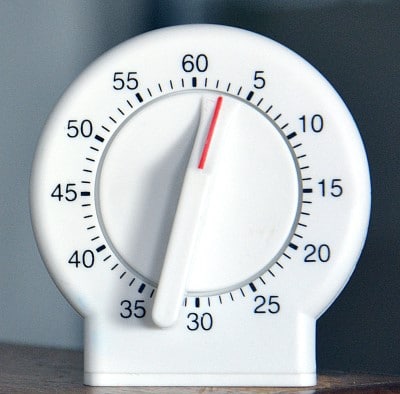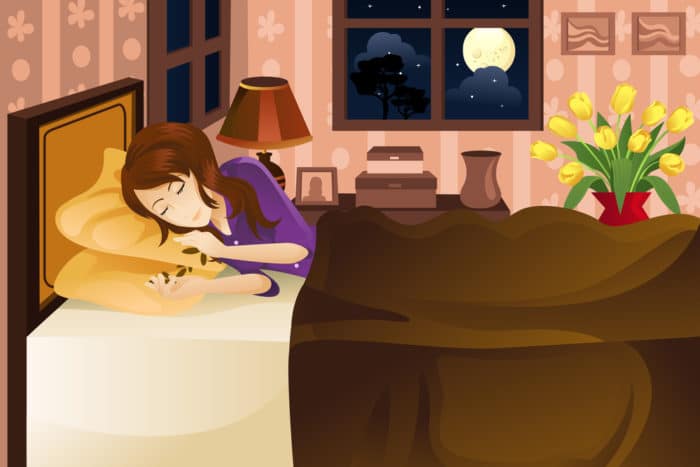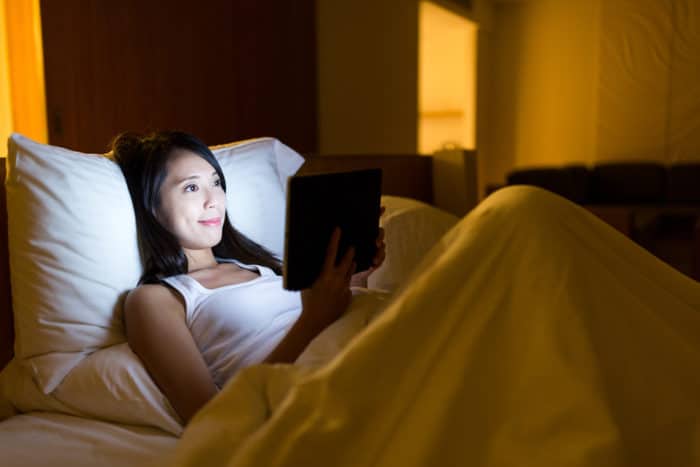
6 Things to try if you can’t stop reading before bedtime
By Jason Wooden, PhD | January 12, 2021
If you really can’t stop reading before bedtime, your options to keep your sleep on track include setting a timer, adjusting your evening routine, changing what you read, and various other remedies.
However, night time reading may not be your only challenge as there are often multiple issues at play. A doctor can help you identify other underlying issues including anxiety, depression, and common sleep disorders.
In this article, we’ll talk about:
You know what’s coming yet you still can’t stop reading before bedtime…
We’ve all had those nights – knowing it’s bedtime and you really need to get some sleep but you just can’t stop reading.
Yes, there will be a terrible price to pay the following morning and you’ll live to regret it, yet you’re powerless to overcome the draw of a good read.
Every night millions of people struggle with falling asleep across the globe. Night time reading is likely issue for some.
There are certainly benefits to reading in the evening, especially if it helps you relax and doesn’t keep you up too late.
Where we get into trouble is with those exciting page turners in which just can’t wait to see what’s going to happen next.
Or maybe, it’s a topic so disturbing that you can’t get it out of your mind.
Regardless, it’s all the same for your sleep – you’re not transitioning to a blissful slumber in a timely manner which means you’re up way later than you should be. Your body doesn’t get the rest it needs to fully recharge so you wake up ready to go in the morning.
Instead, you’re dragging throughout the day and vow to do the better.
Except, it doesn’t exactly work out that way, right?
If this is you, you’re of course not the only one. It’s real problem millions of people struggle with and they’re practical things you can do about it.
Let’s take a look at the pros & cons for bedtime reading and some things to try if can’t stop reading before bedtime.
Yes, there are benefits from reading at night
Right now, you may be frustrated if you can’t stop reading before bedtime.
However, reading in the evening can actually be beneficial…IF YOU’RE DOING IT RIGHT.
To transition to sleep, it’s important that your mind and body is relaxed. If you’re stressed out or wired up about something, it’s going to be hard to knock off.
In fact, stress and anxiety are among the most common causes of insomnia. It’s tough to fall asleep with a racing mind.
Reading can certainly help with this assuming it’s the right type of book that’s not keeping you up past when your body says it’s time to sleep.
And there are other real benefits if you’re reading is calming and you’re able to stop when it’s time to sleep:
Stress reduction
Stress can be bad for your health and your sleep too. It can turn on your body’s flight-or-flight response making it hard to fall asleep.
University of Sussex researchers found in a 2009 study that after reading six minutes stress levels were reduced up to 68%.
Ref: Lewis, D. (2009), Galaxy Stress Research, Mindlab International, Sussex University, UK
Good for your brain
Reading a is great way to enrich your mind, expand your vocabular, and exercise your brain. Research has shown it can also help improve your memory and prevent dementia.
You’re not staring at a screen….
If you’re reading a book, you’re likely not on an electronic device which has become a major sleep wrecker.
It’s hard to unplug from social media, it’s just too stimulating. It’s easy to pass hours on YouTube as you go down one rabbit hole after another.
And if you’re reading a book, you’re not exposing yourself to the bright light from an electronic screen. Whether it’s a smart phone, tablet, or TV, they all emit bright blue wavelength light which tells your brain it’s time to be awake.
Why can’t you stop reading before bedtime?
We just looked at all the benefits from reading if you’re doing things the right way. Unfortunately, all too many people develop bad habits surrounding bedtime reading.
So, before we get into your options, what makes it hard for you to stop reading before bedtime?
For me, I enjoy a good read and sometimes I’m still not ready to go to sleep.
It’s understandable if it’s occasional issue, but if it’s happening night after night, it’s a habit that’s costing you. It’s important you give yourself an honest answer since what you do about it will depend on why it’s happening.

Some of the reasons people stay up reading past bedtime include:
- too wired up
- bored and restless
- procrastination
- you really enjoy reading and don’t want it to end
- you’re addicted to reading and can’t stop
- it’s hard to find a good stopping point and you have to find out what happens
- dealing with something more serious like depression
I wouldn’t be surprised if more than one of these factors is at play. The good news is that there are answers to many of them.
What to try if you can’t stop reading before bedtime
Okay, now that we’ve looked at causes, let’s get to the practical things you can do about it. Depending on your situation, I wouldn’t be surprised if you have to combine several remedies.

1) Set a timer
This one is pretty simple, especially if you’re the type that can easily loose track of time when absorbed in a book.
However, if you’re also the type that ignores a clock or has the habit of pushing the snooze button it might not be as helpful.

2) Adjust your evening routine
If you really enjoy reading, schedule it in. Some people start there bedtime routine when they start to feel sleepy.
If your normal bedtime is 10 o’clock, get ready for bed at 9 so you have plenty of time to read.

3) Read something less exciting
Let’s be honest. As I mentioned earlier, it’s just hard to put down some books, especially if it’s a good thriller, mystery, or an exciting adventure. That’s the magic of a good read.
If this is you, try reading the page-turners earlier in evening (or day) and switch to something less stimulating at bedtime. Your goal is to avoid anything that’s hard to put down or gets you too wired up.
What to try:
* Something light
* Something easy to get in and out such as short stories or articles
* Feel-good or uplifting books
* Nonfiction
* Spiritual or faith-based books
Keep in mind we’re all a little bit different – what’s stimulating to one person may be boring to another.

4) Try unwinding a different way
In you really struggle with reading at bedtime, there are other sleep-friendly ways to relax before going to sleep. There’s an old saying that the best way to stop a bad habit is to replace it with a good one.
You can try light music, working on a puzzle, or journaling.

5) Enlist the help of a spouse, partner, or room mate
A spouse or partner can help you stick to your goal of going to bed on time. In fact, you may have to commit together to a plan and keep each other accountable.

6) Get help from a therapist
If you’ve tried everything you can think of and you still can’t stop reading before bedtime, there may be something more serious going on in your life such as depression or anxiety.
You may also want to get help if your habit is affecting other people. A sleep coach or therapist can help you identify underlying issues that may not be obvious.
If you can’t stop reading before bedtime, you should do these things too
You may think that reading is your only issue for sleep, but there may be other issues at play. That’s because there are so many different things that affect sleep.
And sometimes different sleep issues can play off of each other and make a bad situation worse.
Some other things you should do include:

Practice good sleep hygiene:
Your everyday habits can make a big difference for how well you sleep at night. Poor sleep hygiene can sabotage everything else you do to improve your sleep.
For better sleep hygiene you should:
- wake up and go to bed at the same time every day
- exercise
- avoid large meals, alcohol, and stimulants such as caffeine before bedtime
- maintain a bedtime routine
- avoid electronics (TVs, tablets, smartphones) near bedtime
- keep your bedroom dark, cool, quiet, & relaxing
Learn more: sleep checklist

Avoid reading from electronic screens:
If you’re reading from a kindle, tablet, or smartphone, keep in mind the bright blue wavelength the electronic screens admit. As I mentioned before, the bright light confuses your brain saying its daytime and you should be awake.
If your only choice is to read from an electronic device, check to see if there’s an evening mode where the screen is adjusted to be less harmful:
Android devices
Apple devices (iPhone, iPad)
Kindle devices
You can also try blue-light blocking glasses:
How blue-light blocking glasses help insomnia
Sleep hacks to protect from blue-light

Get a check up:
Besides getting help from a sleep counselor or therapist, you may also want to get a checkup. First, there’s the connection poor sleep has with anxiety and depression.
Also, many health issues are linked to poor sleep including diabetes, heart disease, chronic pain, arthritis, and asthma. You may also be living with an underlying sleep disorder such as obstructive sleep apnea.
A sleep specialist can help you identify other underlying health issues wrecking your sleep and recommend a treatment plan.
What to remember if you can’t stop reading before bedtime:
- Reading the wrong stuff can keep you up past bedtime or get you too wired up to fall asleep
- There are practical things you can do about it
- If you’ve tried everything you can think of, be sure to get help!
Connect with us:
About Us
Better Sleep Simplified® was founded as a place for you to get clear and well-researched information.
Our goal is to make sure you know about your options so that you take action sooner rather than later.
Check us out on YouTube:
Watch and Learn
Helpful sleep tips, interesting sleep facts and statistics you want to know about
Affiliate Disclosure
This site is a participant in the Amazon Services LLC Associates Program and other affiliate advertising programs designed to provide a means for sites to earn advertising fees by advertising and linking to them.
Important: BetterSleepSimplified.com is for informational purposes only and is not intended or implied to be a substitute for professional medical advice, diagnosis, or treatment. Always consult a physician for sleep and health concerns. See additional information.
